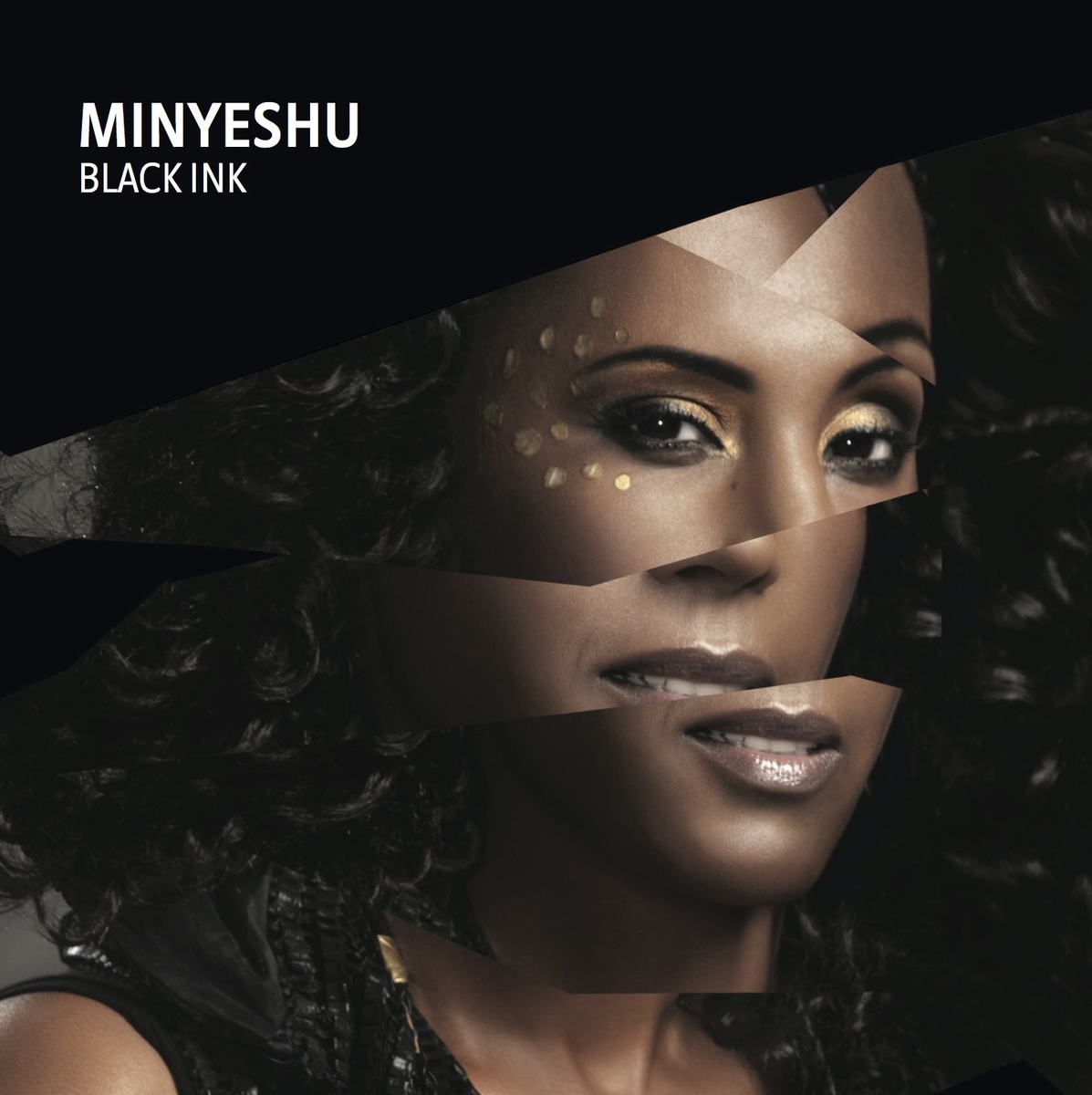Black Ink (available from Westdrum Records) opens with a few staccato bursts before introducing a funky, unmistakably Ethiopian groove and the soulful, supremely confident singing of Minyeshu. Minyeshu was born in the city of Dire Dawa, a city founded with the creation of a railroad between Addis Ababa and Djibouti in the early 20th century. Ethiopian music is known for its relative isolation from other African musical influences, but Minyeshu, has a sound that is at once distinctly Ethiopian and also indebted to musical influence from other African countries, Europe, and the United States. Among the influences she cites are Ethiopian icons Aster Aweke (now based in Washington, DC) and Tlahoun Gèssèsse; the South African singer and anti-apartheid activist Miriam Makeba; Michael Jackson (especially influential for Minyeshu’s greatest passion: dancing and choreography), and the Belgian chanteur Jacques Brel.
Minyeshu began her career at the age 17, at the National Theatre of Ethiopia, where she developed her talents as a singer, dancer, producer and choreographer. She left Ethiopia in 1996 due to the country’s political climate. Since then, she’s been in Europe-- first in Belgium and currently in the Netherlands. Since releasing her first solo album, Mebaâ in 2002, Minyeshu has expanded her stylistic repertoire. She works with fellow Ethiopians, as well as musicians from Sudan, The DR of Congo, Mali, the US and the Netherlands.
Black Ink, her third album, is produced by Stefan Kruger, a Dutch jazz drummer, who has also worked extensively with the Brazilian-Dutch singer Lilian Vieira. Minyeshu and Kruger’s familiarity with a diversity of musical styles can be heard as the album jumps from the off-kilter funk of “Zare” to the more easygoing Ethiopop of “Jopia/Black Ink.” Minyeshu’s voice matches the album’s shifting genres: she sounds commanding on “Zare,” then, seamlessly shifting the tone and timbre of her inflections, she becomes joyful on the ebullient “Jopia/Black Ink.”
“Yilemedal” is one of the album’s most gorgeous tracks. It opens with strings that bring to mind the classic soul sound of the '70s. Minyeshu sounds plaintive but cool, as she sing-raps over a funk bass line.
This album is never content to stick within one genre: the next track, “Ken Te Ken” features thick bluesy guitar playing. As the album moves from one style to the next, what holds it together is Minyeshu’s voice. Even without understanding Amharic, her emotion is clearly understood, as is her expression of identity. She has a unique story to be sure-- an Ethiopian singer, living in the Netherlands, displaying Michael Jackson dance moves-- and her music is just as original as that story. Those initial staccato bursts of “Zare” are captivating, and as Black Ink progresses, Minyeshu proves that she is an artist of great depth.









